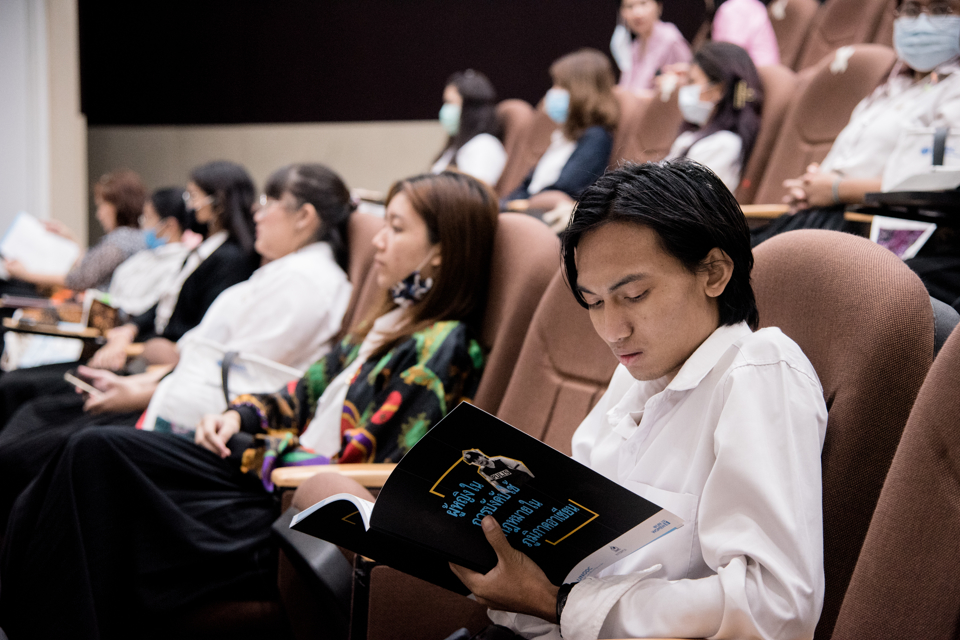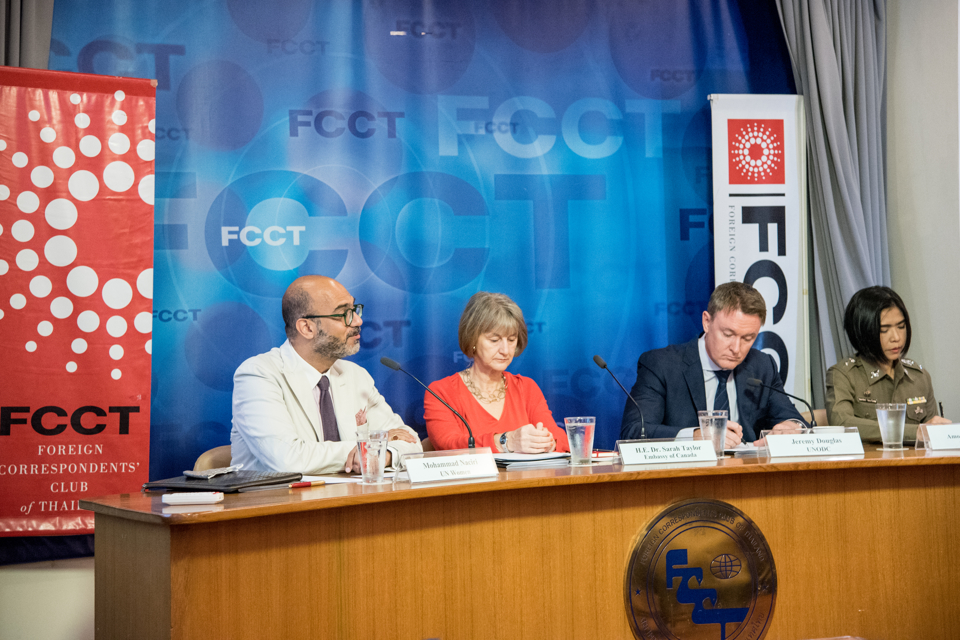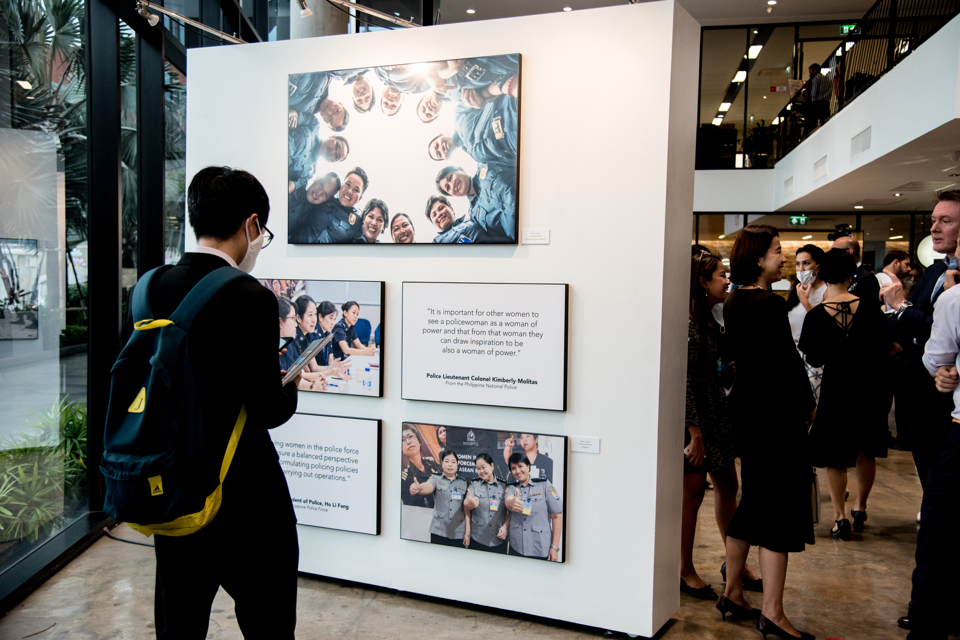Women police are key to the next generation of law enforcement
Date:
Author: Fanny Arendt

Pathumthani, Thailand — Women police officers not only deserve equal career opportunities, they also bring demonstrated improvements to law enforcement. Nonetheless, structural and other obstacles remain to the equitable inclusion of women in security forces in South-East Asia. A recent seminar hosted by UN Women and the UN Office on Drugs and Crime (UNODC) discussed these challenges with students in Bangkok.
The event on 12 November was attended by more than 100 students from the Faculty of Criminology and Justice Administration of Rangsit University. Many graduates from the course go on to join the ranks of the Royal Thai Police or other law-enforcement agencies.
Among these students, many young women are eager to enter a career where they protect communities from crime and violence. Compared to their male peers, however, they will face several barriers in accessing this male-dominated field. Stereotypes regarding gender roles in society and misperceptions that physical strength and above-average height are required to be a police officer continue to deter and restrict women from both joining and climbing the ranks of law-enforcement agencies. As a result, women’s representation in the sector remains ranges from6 to 20 percent across the countries of the Association of Southeast Asian Nations (ASEAN), according to a recent report titled Women in Law Enforcement in the ASEAN Region, published by UN Women, UNODC and INTERPOL.
“Combatting crime is about more than physical strength alone – it’s about intelligence gathering, analytical skills, and comprehensive investigative practices”, says Mohammad Naciri, regional director for UN Women Asia Pacific.
“I daresay that any female police officer is tougher than me, stronger than me, and has more grit than me. I also daresay that emotional intelligence, the ability to sympathize, effectively communicate with people, and defuse conflicts - qualities often attributed to women - are qualities we should strive for across law enforcement, in men and women.”
At the November event, students discussed the key findings of the report on women and law enforcement in the region, which was made possible by the generous support of the Government of Canada. Students learned how the presence of female officers enhances the overall effectiveness of law enforcement, contributes to building community trust, and can reduce the incidence of sexual and gender-based violence in some contexts.

At the research launch on 26 August 2020, Sarah Tayler, ambassador of Canada to Thailand, Lao DPR and Cambodia, emphasized the importance of diversity in relation to gender, ethnicity, religion and other backgrounds amongst police officers. She said, “As a domain that is supposed to serve society, it needs to reflect society.”
Also speaking at the launch, Police Lieutenant Colonel Amonrat Wathanakosit, an instructor in the Royal Thai Police, highlighted the need to expand and advance women’s deployment and career opportunities, saying: “As police officers, we don’t only enforce [laws], we also serve our communities. Female officers play crucial roles in preventing violence and helping communities during all types of crises and emergencies.”
According to the above-mentioned research, women in Thailand face significant barriers to pursue a career in policing and law enforcement. Specifically, since 2018, women can no longer join the Royal Police Cadet Academy. They can however join the Royal Thai Police after graduating with a Bachelor’s Degree or a Master’s Degree in a specialized field. Among the next generation of police officers studying at Rangsit University, almost 80 percent who participated in the seminar shared that they would be supportive and proud if their female relatives became police officers. As these students prepare to change their school attire for police uniforms, they also shared that they want to see a more gender-inclusive Royal Thai Police that is taking advantage of the contribution women can make in their future field of work.
With a view to making these officers-to-be better aware of the challenges, UN Women and UNODC also organized a photo exhibition titled Inspiring women: the vital contribution of women in law enforcement in the ASEAN region. The photos showed female police officers who have torn down barriers to be professionals in combatting crimes and violence. These women serve as great inspiration for improving gender equality in law enforcement agencies for the next generation of female police officers, in Thailand and beyond.

See also: